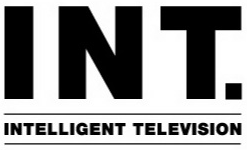Clifford Lynch, Executive Director of the Coalition for Networked Information, reviews the progress made on day one of the conference, highlighting how academic and commercial thinking and markets overlap. The panel on archives, museums, and libraries opens with David Dawson, Head of Digital Futures of the UK Museums, Libraries, and Archives Council, outlining UK research and funding agendas and business modeling, including models for new relationships with public broadcasting. Kati Geber, Manager of Research and Business Intelligence at the Canadian Heritage Information Network, follows with an analysis of the scene in Canada, noting that 75 percent of museum visitors in Canada today begin their visits online. **If Only We Knew Yesterday What We Know Today** Clifford Lynch, Coalition for Networked Information **Industry Study: The Economics of Open Archives, Museums, and Libraries ** David Dawson, Museums, Libraries, and Archives Council, UK Kati Geber, Canadian Heritage Information Network On January 23-24, 2006, [ Intelligent Television](http://www.intelligenttelevision.com/) hosts the Economics of Open Content symposium at MIT to bring together representatives from media industries, cultural and educational institutions, and legal and business minds to discuss how to make open content happen better and faster. With the support of the Hewlett Foundation and MIT Open Courseware, Intelligent Television brings representatives of commercial media industries (publishing, film, music, television, video, software, education/courseware, gaming) together with representatives of cultural and educational institutions who are innovative in this area and legal and business minds in the academy who are studying how to make this happen faster and better. New Yorker economics columnist and bestselling author (*The Wisdom of Crowds*) James Surowiecki keynotes at the Cambridge meeting, with a presentation entitled 'Openness as an Ethos.' Intelligent Television has been conducting a year-long investigation into the economics of open content. This project is a systematic study of why and how it makes sense for commercial companies and noncommercial institutions active in culture, education, and media to make certain materials widely available for free, and also how free services are finding new (sometimes commercial) ways of becoming sustainable. The project builds upon written work that Intelligent Television recently completed with the support of the Mellon Foundation and Ithaka on [Marketing Culture in the Digital Age](http://www.intelligenttelevision.com/marketingculture.htm), and also upon work now being completed as part of the Mellon Foundation-supported Commission on [Cyberinfrastructure in the Humanities and Social Sciences](http://www.acls.org/cyberinfrastructure/cyber.htm). The project also informs new economic models that Intelligent Television is establishing for its documentary work. This work is licensed under a [Creative Commons License](http://creativecommons.org/licenses/by/2.5/).
Partner:
Intelligent Television
